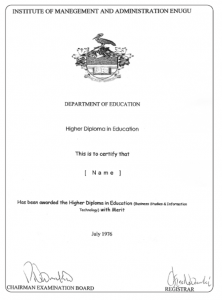Fraud: a growing problem in education, and how to guard against it
“UK universities and colleges are in an uncomfortable position at the immigration front line. Due diligence has to be completed to demonstrate to the Home Office auditors that robust systems are in place”
As institutions work to tackle the problem fraud in student applications, Steve Miller of UK NARIC, the designated national agency responsible for providing information, advice and expert opinion on qualifications worldwide, shares some pointers on how to spot fake documents.

‘I didn’t know fraud was so common, so widespread’ – that’s the comment UK NARIC hears again and again from the university and college staff who attend its fraud workshops and seminars.
UK NARIC has been running its fraud training for over eight years – so we have trained a lot of staff from HE institutions. And in that time, we have had to develop the training year-on-year, because fraud has definitely become more common, and the fraudulent techniques adopted have become more elaborate.
The rise in numbers of international applications has increased the challenge for admissions staff – there are more applications to be sifted and checked, and from a greater variety of places, so staff have to learn and become familiar with an ever-wider array of qualification certificates and ID documents.
“Staff have to learn and become familiar with an ever-wider array of qualification certificates and ID documents”
UK universities and colleges are in an uncomfortable position at the immigration front line. Due diligence on applications has to be completed, and the evidence and audit trails all have to be there, to justify decisions taken and to demonstrate to the Home Office auditors that robust systems are in place.
Establishing with certainty the identity of an applicant is first base. Fake ID documents are a growing problem, but so too are genuine documents obtained illegally. Check across all documents supplied looking for discrepancies in the name and in age/date of birth. Any changes in name, eg due to marriage, should of course be supported by the necessary further documents – marriage certificates etc.
Be aware that there is a growing trade in fake EU passports – a popular choice as these give entry to any EU country without a visa. You will need to learn passport security features and check that documents have all of these. Some inexpensive equipment will help – most security features can be checked with a magnifying glass and a black light (UV-A lamp).
“Be aware that there is a growing trade in fake EU passports – a popular choice as these give entry to any EU country without a visa”
Social media can be a useful help to you. Check on a person’s ‘web imprint’. Do their Facebook posts match their claimed age and educational history? Do locations match – during their claimed years of study, have they been posting online from the university town you would expect? Facebook and other social media image uploads can also help with checking passport photos.
When it comes to qualifications, the first challenge is to check that the issuing institution is fully recognised. With such high numbers of applications coming from India and China, you may well encounter certificates from an unrecognised institution – there are many of them in these huge countries. Those of you who are subscriber members of UK NARIC will know that you can access full listings of recognised institutions in each country using our online data banks.
The next stage is to check if the certificate is genuine. If you are receiving a good number of international applications, you can and should build a library of certificates over time, to act as a live reference base against which incoming certificates can be compared.
Check certificates for all the obvious things first – all spelling should be correct; check all alignment – are type and graphics all properly centred and is everything straight? Check that dates are rendered correctly and that they make sense in terms of the qualification.
A more advanced level of checking would be to examine the signatures on the degree certificate – not only that the signature matches the genuine signature for the person named, but also that the Vice Chancellor or Principal named is correct in terms of the date of issue of the document.
“Print quality is not always a good guide to genuineness”
Print quality is not always a good guide to genuineness. Some recognised and well-established institutions in developing countries issue degree certificates that are not especially ‘well printed’. But type and graphical alignment will still be accurate.
UK NARIC would always advise that you do not rely on the degree certificate alone, but that you also obtain a transcript. This gives you further information to check against – module marks can be checked against the final degree classification; award titles should tally; course duration can be checked against the standards and norms for the country. If you cannot obtain a transcript from the applicant then you can request one direct from the institution.
A good general knowledge of countries’ education systems is a useful asset for anyone doing these sorts of checks.
UK NARIC offers advice and support to universities and colleges in all these areas – visit www.naric.org.uk to find out more.